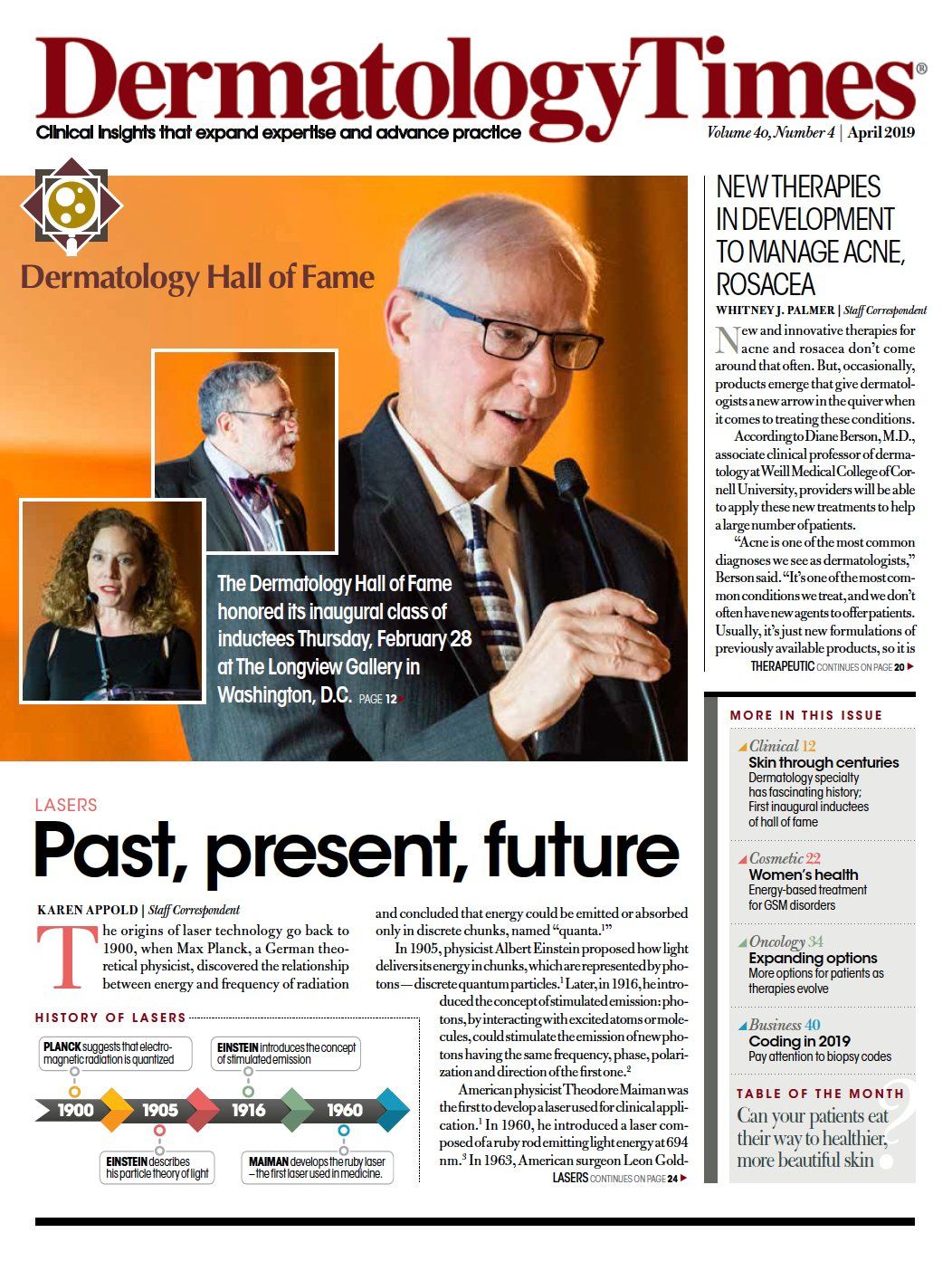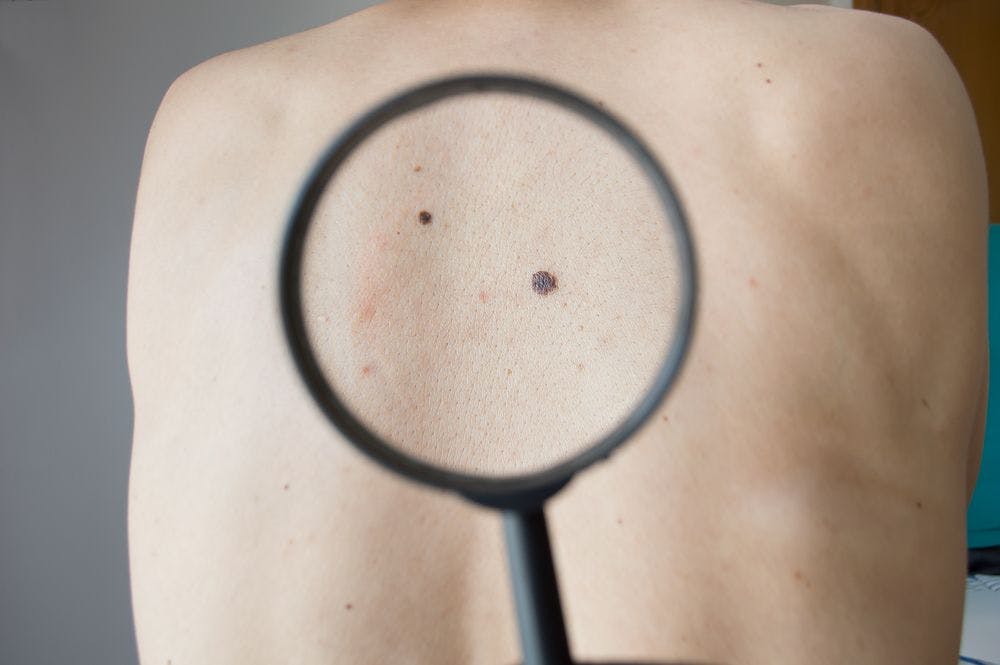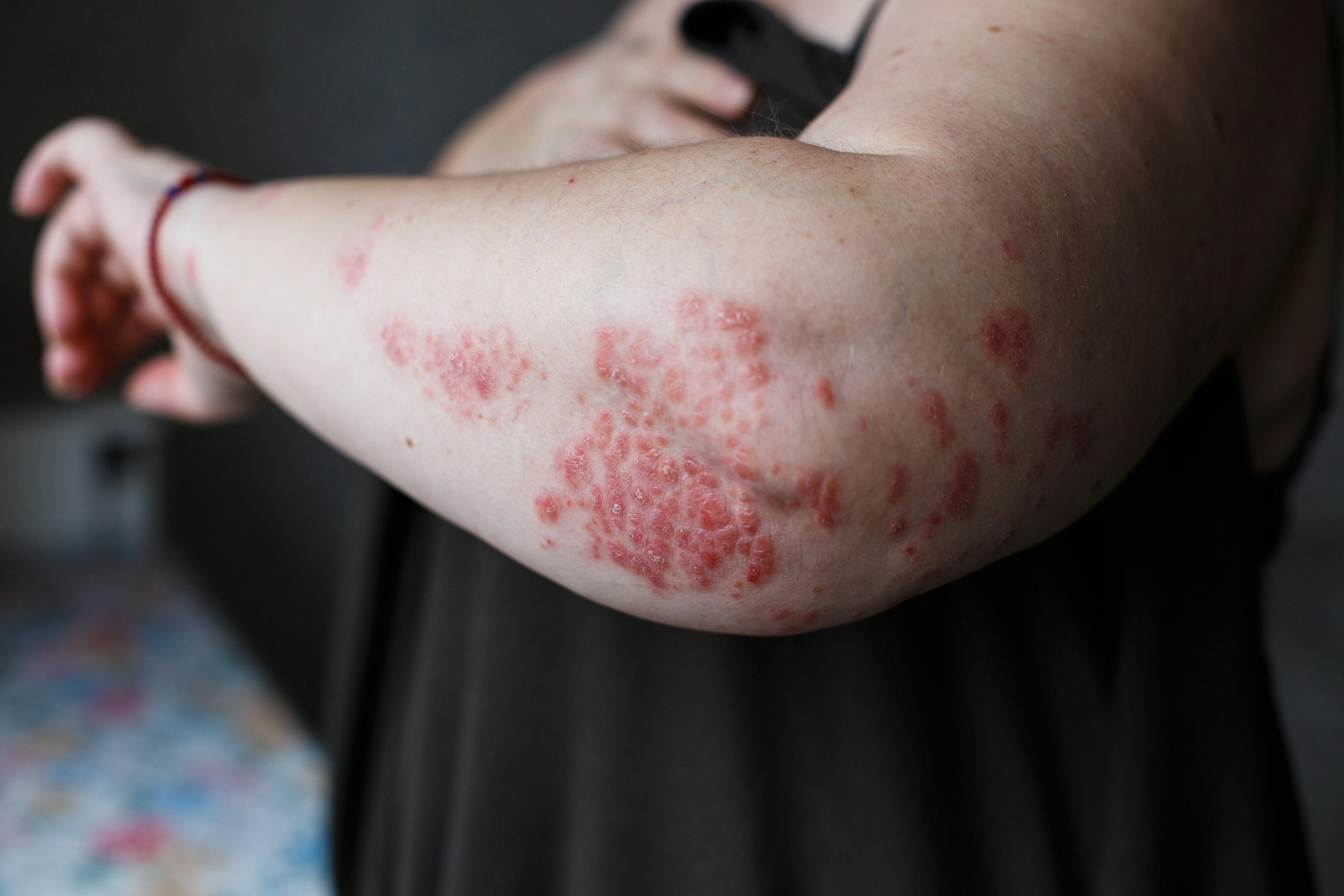- Acne
- Actinic Keratosis
- Aesthetics
- Alopecia
- Atopic Dermatitis
- Buy-and-Bill
- COVID-19
- Case-Based Roundtable
- Chronic Hand Eczema
- Chronic Spontaneous Urticaria
- Drug Watch
- Eczema
- General Dermatology
- Hidradenitis Suppurativa
- Melasma
- NP and PA
- Pediatric Dermatology
- Pigmentary Disorders
- Practice Management
- Precision Medicine and Biologics
- Prurigo Nodularis
- Psoriasis
- Psoriatic Arthritis
- Rare Disease
- Rosacea
- Skin Cancer
- Vitiligo
- Wound Care
Publication
Article
Dermatology Times
Verrica’s cantharidin solution passes phase three trials
Author(s):
Drug-device combination, VP-102, met all primary and secondary endpoints in the parallel Cantharidin Application in Molluscum Patients (CAMP)-1 and CAMP-2 trials.
Drug-device combination, VP-102, met all primary and secondary endpoints in the parallel Cantharidin Application in Molluscum Patients (CAMP)-1 and CAMP-2 trials. (Lukassek - stock.adobe.com)

The success of a novel 0.7 percent cantharidin solution in phase three trials brings a consistent approach to molluscum contagiosum (MC) closer to U.S. Food and Drug Administration (FDA) approval.
The drug-device combination, VP-102, met all primary and secondary endpoints in the parallel Cantharidin Application in Molluscum Patients (CAMP)-1 and CAMP-2 trials, said principal investigator Lawrence F. Eichenfield, M.D., professor of dermatology and pediatrics at the University of California San Diego and Rady Children's Hospital, San Diego.
"Molluscum contagiosum is an incredibly common condition, especially in children," he said. Caused by a DNA poxvirus, MC is highly contagious from contact and has a very high co-infection rate among family members, he added. "While one traditional approach has been waiting for lesions to go away, the data show very clearly that they can persist with an average duration of 13 months."
While some experts have used cantharidin for MC in the past, Dr. Eichenfield said, physicians now have difficulty accessing it, especially with changes in FDA policies regarding bulk substances and compounding regulations. Cantharidin has never undergone formal clinical trials, he added, or been proven safe and effective for this condition; there has been no clear regulatory framework to support the use of cantharidin in practice.
ABOUT THE TRIALS
In each trial, investigators randomized approximately 150 patients (mean age: 7.5 years) to active treatment and approximately 110 patients to placebo. Mean baseline lesion counts were 19-25.
Patients received treatment or placebo every 21 days until clearance or four applications total. To eliminate cross-contamination concerns, Verrica designed a single-use, squeeze-on applicator that dispenses a consistent strength and concentration of the drug, which patients left on for 24 hours before washing, said Dr. Eichenfield.
At 12 weeks, the proportions of patients in CAMP-1 and CAMP-2 who achieved complete clearance were 46 percent and 54 percent, respectively, versus 18 percent and 13 percent for vehicle (p<0.0001 in both trials). In CAMP-1, Dr. Eichenfield added, there was clear statistical separation at all time periods for the primary outcome - including at three, six and nine weeks. Statistical significance emerged at week six in CAMP-2. Week 12 lesion counts decreased 69 percent and 83 percent, respectively, versus 19 percent and 20 percent for placebo.
Incidence of treatment-emergent adverse events (TEAEs; mostly mild, localized reactions that researchers expected) was 95 percent and 96 percent in both treatment cohorts, versus 66 percent and 73 percent for placebo. Only three cantharidin-treated patients discontinued treatment due to TEAEs.
Future steps include submission for publication and to the FDA. Approval, if granted, will help drive a more consistent approach to managing MC, Dr. Eichenfield said.
Reference:
Lawrence F Eichenfield MD. "CAMP-1 (Cantharidin Application in Molluscum Patients) and CAMP-2: Phase 3, Randomized, Double-Blind, Placebo-Controlled, Pivotal Studies Investigating VP-102, a Drug-Device Combination Containing a Novel Topical Formulation of Cantharidin, for the Treatment of Molluscum Contagiosum," F078, American Academy of Dermatology. March 2, 2019.
Disclosures:Dr. Eichenfield reports no relevant financial interests. The University of California San Diego received research funding from Verrica Pharmaceuticals for the trials.

Newsletter
Like what you’re reading? Subscribe to Dermatology Times for weekly updates on therapies, innovations, and real-world practice tips.




























